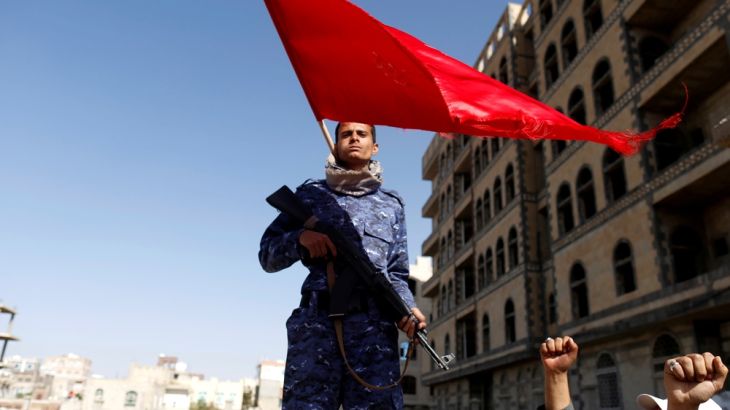
Do the Houthis have a plan for peace in Yemen?
We challenge the Houthi-backed Yemeni FM Hisham Sharaf, and speak to Francis Fukuyama about ‘identity politics’.
In this week’s UpFront, we ask Hisham Sharaf, the Houthi-backed foreign minister in Sanaa, about their quota of responsibility in the crisis and the civilian casualties in the ongoing war in Yemen.
And in a special interview, we ask Francis Fukuyama, whose latest book is titled Identity: The Demand for Dignity and the Politics of Resentment, if identity politics are really damaging democracy.
Headliner – Houthi-backed FM: Proud of rockets fired into Saudi
In the almost four years since the Saudi-led coalition’s air campaign against Houthi rebels in Yemen began, tens of thousands of civilians have been killed, and millions pushed to the brink of starvation. The Houthis overthrew the internationally recognised president of Yemen, Abd-Rabbu Mansour Hadi, and seized control of parts of the country in 2014.
In December the United Nations is planning to reconvene peace talks in Sweden between the Saudi-backed government led by Hadi and the Iran-backed Houthi rebels.
Given the Houthis didn’t attend the Geneva peace talks in September, will they attend the talks this time in Sweden? And what quota of responsibility do they have for the crisis in Yemen?
“We didn’t say that we are clean 100%, things happen during the war,” says Hisham Sharaf, the Houthi-backed foreign minister in Sanaa, in response to accusations from various human rights groups that Houthis have blocked foreign aid, tortured detainees, used child soldiers and shelled civilian areas.
“If we get 10% of that, the Saudis and their coalition is responsible for 90% of the killing in Yemen,” Sharaf says.
Editor’s note: This episode was recorded prior to a report that alleges the UAE and Saudi Arabia threatened not to attend upcoming talks if a UN ceasefire resolution, drafted by the UK, was passed.
Special Interview – Are ‘identity politics’ really a threat to democracy?
Are ‘identity politics’ really a threat to democracy? We ask Francis Fukuyama why he thinks that Black Lives Matter and the Islamic State of Iraq and the Levant (ISIL, also known as ISIS) are manifestations of the same problem.
In this week’s special interview, UpFront meets with US political scientist Francis Fukuyama who famously argued in his 1989 book The End of History that Western liberal democracy had arrived at the end of its struggle.
Around the world, democracy is increasingly threatened by the rise of authoritarian, illiberal and nationalist leaders who are cracking down on the press and civil liberties. In a new book, Identity: the Demand for Dignity and the Politics of Resentment, Fukuyama argues that identity politics are partly to blame.
What begins as a drive for “recognition and respect” through group membership can have negative consequences because, he argues, “liberal democracy is based on individuals, not on group memberships.”
But does that mean we should forget about things like race?
When asked how to square with the fact that in the United States, even black boys raised in the wealthiest families still make less than their white counterparts, Fukuyama replied: “Whether you’ve got a higher education or just a high school education or less, is really the single thing that’s the most determinative of your life, opportunities, and outcome.”
On the rise of right-wing governments around the world, Fukuyama said: “I think that there is a kind of tone-deafness by, you know, from people on the left to actually what bothers people and what has made a lot of people vote for these populist candidates.”
“If you don’t figure out what’s bothering them, you’re not going to solve the underlying problem that is driving the polarisation in the United States.”
Follow UpFront on Twitter @AJUpFront and Facebook.